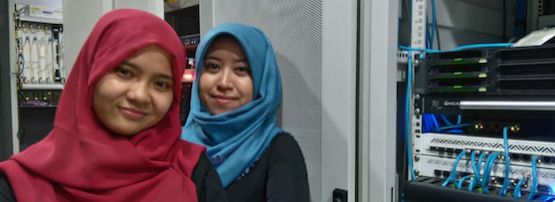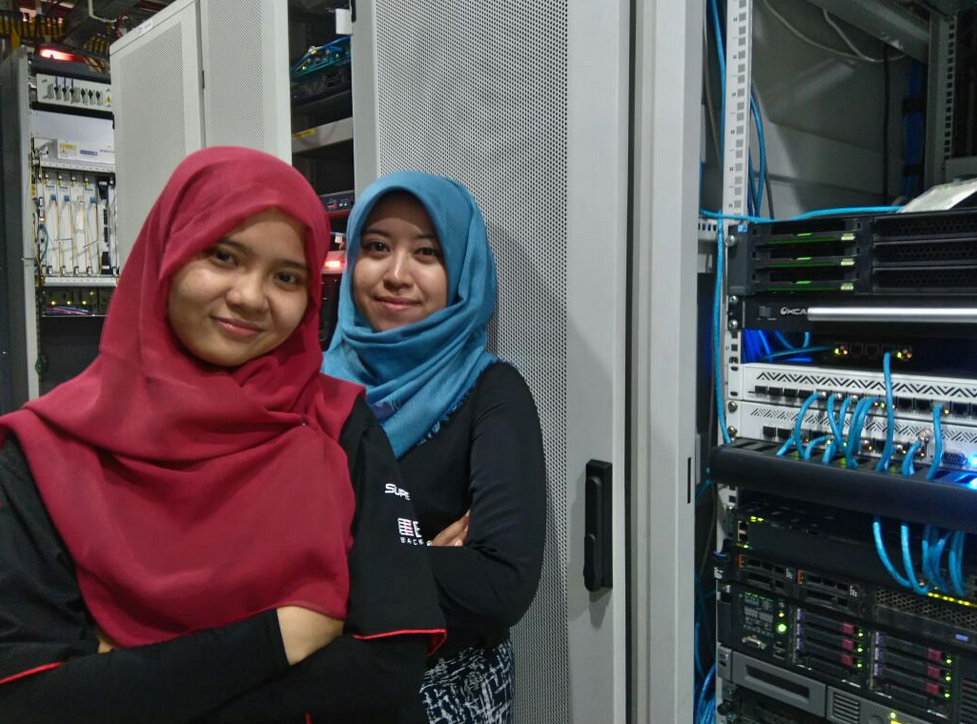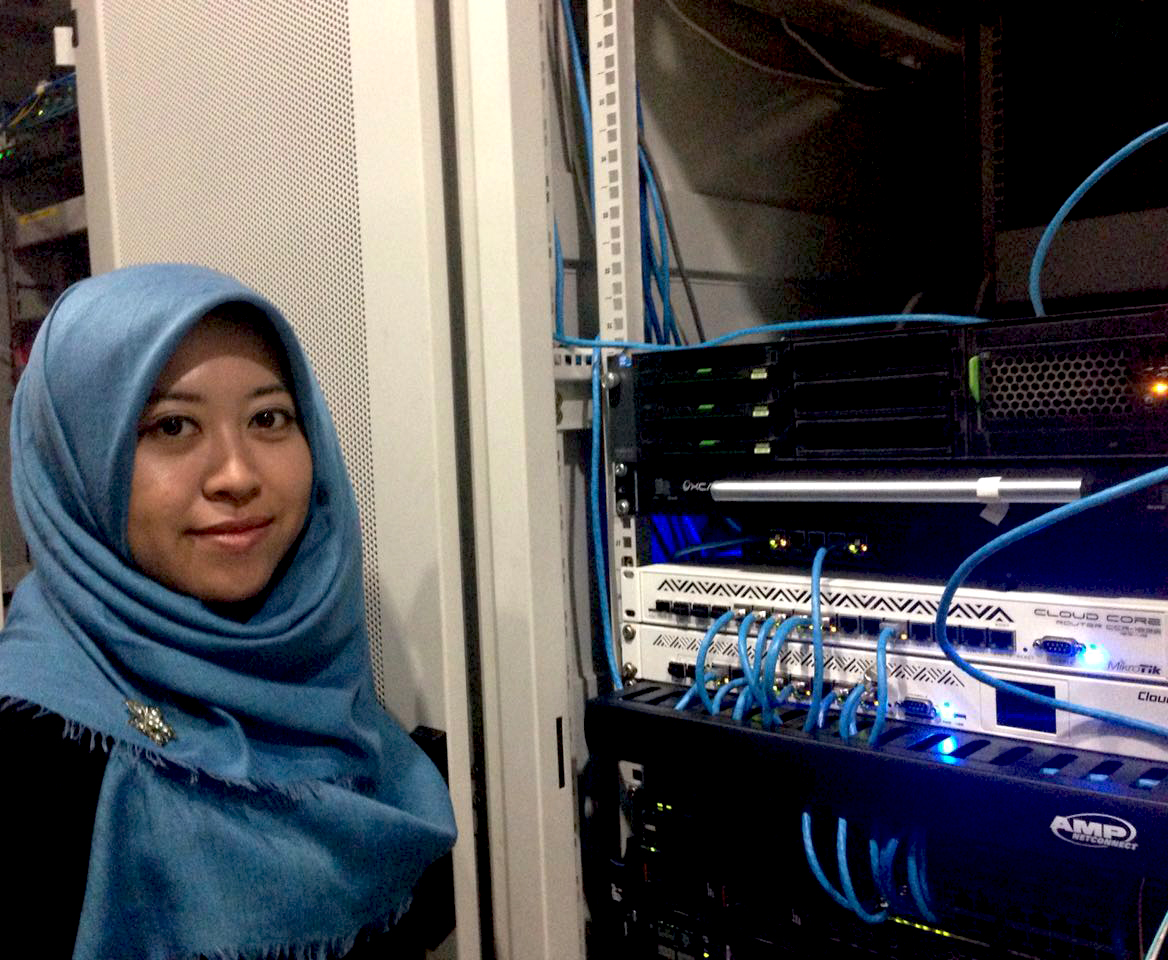
Earlier this year, the Association of Internet Service Providers in Indonesia (APJII) announced that Internet penetration in Indonesia had now reached 40% of the population, or 100 million Internet users – up from 88 million in 2014.
Such growth has, in turn, led to more jobs in the industry, opening the door for a new generation of engineers and operators to build the network for the future. Although Indonesia’s three biggest telecommunication network and service providers – Telekomunikasi Indonesia (Telkom), XL Axiata and Indosat – control 85% of the market share, this growth has also opened the door to multiple smaller providers, and with it, an increase in job opportunities.
Anggun Fuji Lestari and Irma Gustina are network engineers who recently attended one of APNIC’s Training workshops held in Penkanbaru, Indonesia.
Both work for PT Mora Telematika Indonesia (Moratelindo), one of a number of relatively new (established in 2000) local telecommunication and broadband providers.
“I went to Telecommunication Vocational High School and continued my study to Computer Science Major in college,” says Anggun. “I’ve now been working as an NOC IP Core Engineer at Moratelindo for over three years.”
Irma shares a similar experience to Anggun’s, having graduated with a degree in Computer Science and has worked in the industry for just over three years. “I started as a Region Fault Monitor for Huawei Services and then I moved to Moratelindo where I’m a NOC,” says Irma. “I really like the problem solving side of the job and coordinating a solution to get our customers online as quickly as possible.”
“It’s not easy becoming or being a female network engineer.”
A recent study showed that although Indonesia’s economy and labour market had developed and changed significantly in the past 25 years, women’s participation in the work force had remained low, with a participation rate of 51%. Another study commissioned by the World Bank published similar findings as well.
In addition, women are paid considerably less than men (although this disparity is improving), even when differences in education levels are taken into account.
Both Anggun and Irma recognize these challenges in the ICT sector, especially for aspiring engineers.
“It’s not easy becoming or being a female network engineer,” says Anggun. “There are limited opportunities for women to have a career in ICT, with some companies not even wanting to recruit women for engineer roles. Installing network equipment, installing cables and troubleshooting in the field are often seen as tasks more suited for men, while women are more suited for call centres, customer service, administration, or analysts.
“Even if you do get a job, some employers don’t give women the same opportunities as men to advance their careers, like getting to attend workshops or trainings. It can really limit your career path.”
Irma shares a similar view. “The challenge for a woman working in the ICT industry in my country is that the number of companies who give you a chance are limited. They prefer men for hands-on and trouble-shooting positions. Anggun and I are fortunate to work for a company like Moratelindo which provides opportunities.”
Anggun says that discrimination is also still prevalent. “Discrimination still happens, not only from co-workers but also from our customers. They prefer to have a male rather than female engineers handle their problems.
“They sometimes don’t trust me when I say I’m an engineer. When I call them, some customers hesitate to tell me their complaints or problems on their network, and assume that I am not able to help them. But I always try to make them calm, and believe that I can help them.”
We help people to live better lives
This attitude has served Anggun and Irma, both self-professed “helpers”, well and is in part why they were attracted to the industry and still find it fascinating. For them working in the industry provides a sense of being a part of something valued not just by businesses but society.
“Working in ICT, we help people to live better… we can improve companies’ telecommunications, help people communicate, and ultimately grow the Internet,” says Anggun.
“Personally, I love it when our customer says, ‘Thank you, our link is up!’”
Both women say that they and their female colleagues will continually need to work harder than their male colleagues. However, this should not deter aspiring female engineers from choosing a career in the industry says Anggun. Rather they should embrace the challenges they have had to overcome.
“Becoming a woman engineer is ‘something special’, so we should be proud and remind people how ‘special’ we are.”
The views expressed by the authors of this blog are their own and do not necessarily reflect the views of APNIC. Please note a Code of Conduct applies to this blog.



Love this article